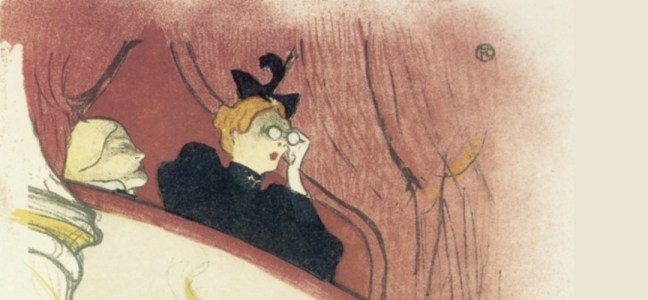
Bartoli in Norma!
All the traditionalists have been up in arms about it: Cecilia Bartoli gives her voice to Norma, with a philological operation meant to bring to life the original intent of Bellini. Norma goes back to a voice which is not extremely high, a voice centered in a lower area, without super high notes. This gives rise to (high wailings from the horror stricken opera-buffs, and) an opera more believable, from a musical point of view, because Adalgisa is now a much lighter soprano, which is perfectly reasonable, as she is supposed to be the young girl, with Norma the more mature woman. Besides, a voice like Bartoli’s is extremely effective in Deh non tremare o perfido, because on the end of the phrase, on the words “per lei” it can sink down to the lower notes with a strength that makes your hair stand on end. The whole trio at the end of the first act becomes magnificently powerful, in a way that I have never witnessed, in the Normas sung by higher pitched sopranos.

Bartoli is very believable, as Norma. Her interpretation is very original, bringing out the vulnerability of the woman, her sincere love for Pollione; her final sacrifice becomes more an outburst of self-respect than a hieratic gesture aimed at appeasing an angry god. I will spare you the list of her vocal gifts, which are as exceptional as ever (ah, the legato! ah, the coloratura!). For the whole first act I was sitting in the highest gallery, and my advice to the “experts” who say that her voice is small and doesn’t project enough is to wash their ears with lots of soap. Haters gonna hate. (In the second act I sneaked into an empty seat in the 6th row of the orchestra.)
Antonini, director of the orchestra “La Scintilla” (original instruments, Norma was written in 1831) did a fantastic job, he’s really great. The orchestra was one of the stars of the evening. Some tempos were slower than usual, in particular Casta Diva, and the final aria Deh non volerli vittime with a lethargic rhythm, which our National Cecilia managed to handle with the bellows-like lungs that she features. Her breath is always amazing. The philological approach involved also the retrieval of all the music written by Bellini. “Traditionally” there are substantial cuts in Norma, in particular the whole solo part of Adalgisa is cut from the third act finale, and instead it is very beautiful. Here everything was sung, and, in my opinion, it made the whole thing more enjoyable.

Now I need to tell you about the stage direction and the mise en scene. “Insane” is the word that comes to mind. “Demented” is another one. Instead of the Roman-occupied Gaul, where the druids, under the rule of the priestess Norma, plan a revolt, we are in the Gaul of 1942, i.e. in German-occupied France. Pollione is the head of the local military force of occupation (and he walks around in a suit and tie, instead of his military uniform, for some mysterious reason) and the druids become a group of the French Resistance. And Norma is…. hmmm…. exactly, god only knows who she is, in this context; neither is clear why a group of French resistance fighters would listen to a possessed priestess who performs esoteric rites involving mistletoe.

Visually, Bartoli reminded us of Anna Magnani in the neo-realistic movie Roma città aperta by Rossellini. The whole story happens, instead of in the sacred woods of the druids, in a school turned into the headquarters of the resistance group. I was in disbelief. I mean, I see the analogy: the locals who rebel against the occupants, ok, it can fit, but the question is: what does it add to the story? How does it make it better? I just don’t get it. The only really good thing about the mise en scene was the last scene.
Usually, Norma and Pollione go to their death on the stake by walking out of the stage, while the chorus comments, staying on stage (sometimes you see a red glow to represent the fire). Here, instead, the chorus goes outside of the school, so it sings from out of sight, and they set the whole school on fire, with the two protagonists inside, tied to two chairs. Real fire, real smoke! First time that I see the burning at the stake on the stage, it was really cool!

Pollione was John Osborn, he’s fantastic!! Absolutely amazing, a full voice, beautiful, high, great technique. He sings Rossini, I heard him in Otello in Paris, really good. In the final duet on the words “sublime donna” he produced a mezza voce which got a tear in my eyes. The first aria was a burst of enthusiasm, of arrogance, of self-esteem and of an enormous ego. A perfect Pollione.
Rebeca Olivera was Adalgisa; as I was saying, her voice is much lighter and young than Bartoli’s, although she’s not a “sopranino”. Her voice is anyway centered in the middle, maybe she’s a bit too metallic for my taste, but very beautiful.
Oroveso was Michele Pertusi, he’s a rock, I heard him a lot of times, he’s always really good.
A last comment on the Salzburg Festival. Even if it wasn’t opening night, there were dozens of VIPs (including the President of Austria), body guards, paparazzi taking photos like crazy when I-don’t-know-who got out of their car. Dream-like evening gowns, several with long trains, which the women after a while picked up from the floor, tired of people tripping on them. I was standing there with my black and white polka dot jacket and my glass of white wine. Bah.
